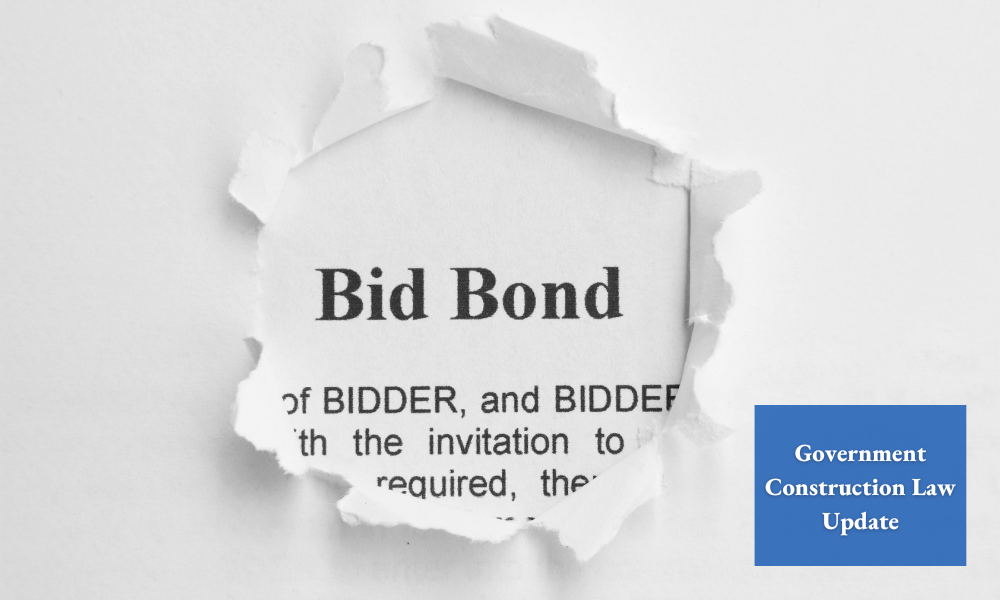When submitting a bid for a public construction project, a contractor is typically required to submit a bid bond along with its bid. A bid bond is a written agreement under which a surety agrees to pay a specific amount to the owner if the contractor refuses to enter into a contract for the project.
In other words, if a contractor does not honor its bid that included a bid bond, the surety will usually be required to pay for the owner’s excess reprocurement costs. Those costs may included the difference in price between the low bid and the next lowest bidder along with the owner’s administrative reprocurement costs.Continue Reading The Importance of Submitting a Proper Bid Bond



